From Giving Thanks … To Giving
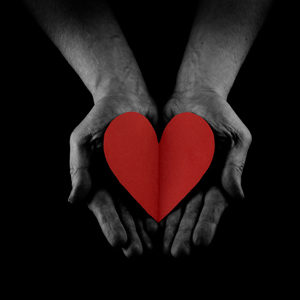 Happy December everyone! December!!! Can you believe it’s already December? Another year flown by. This year felt different to me.
Happy December everyone! December!!! Can you believe it’s already December? Another year flown by. This year felt different to me.
Personally, it was a year of tremendous change and growth—I moved from New York to Florida—huge! My writing life has thrived: I wrote several hundred pages of my novel! (I hope to complete the first draft around the New Year—I’ll keep you posted.) I’ve had 18 essays and stories published in literary journals and have two more forthcoming. My work had two very special acknowledgments: my short memoir “Heavenly Bodies in Seven Parts” won the 2021 nonfiction prize at Tiferet Journal and I was awarded the Dancing in the Rain Fellowship at Dairy Hollow. Acceptances are always wonderful but they don’t come easy! I would be remiss if I didn’t tell you that this year—so far—my writing submissions have been rejected 122 times–that was not a typo!
One of my favorite things about the past year has been meeting, connecting with, and interviewing many wonderful, strong women and making many new friends. What blessings all around!
This year has also been one of great personal challenge. I’ve learned difficult lessons about boundaries, about the many faces of love and how love can change over time. I am turning 61 at the end of the month. I think I needed every minute of those past 60 years under my belt before braving some of that new territory. Perhaps my biggest lesson—always my biggest lesson—has been to “feel the fear and do it anyway.” The Universe keeps providing me with more examples of this particular learning. Hey Universe! I get it!!! How about a little break?!?
Thanksgiving … to Giving
November is the month for Thanksgiving, for reflection and gratitude. December is the month for giving. Gift wrap and shiny new things, many of which we put away in a closet and forget about, even if we’re grateful for having received.
It’s wonderful to give to loved ones. But this time of year is also the time for giving to those we don’t know but who could use our help. Over the months of this blog, I’ve had the great opportunity to interview incredible women, several of whom work tirelessly for nonprofit/foundations that they have built from scratch. This week, I will be pulling highlights from those interviews, along with updates and links for donating, if you feel so inclined.
I am so grateful to these women and to all of you who do your part, living your best lives every day. Thank you for your support, as always! Have a wonderful end of year! Merry and Happy and lots and lots of love to all!!
Patsy Mertz and Ivory Coast Mothers and Children
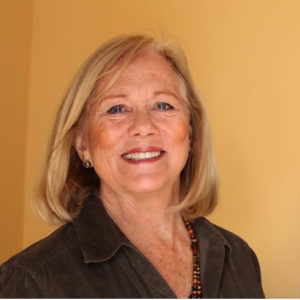 Patsy Mertz was one of my very first interviews—and one of my favorites. She is the founder of Ivory Coast Mothers and Children and the Patricia Nau Clinic in Braffoueby, Cote d’Ivoire.
Patsy Mertz was one of my very first interviews—and one of my favorites. She is the founder of Ivory Coast Mothers and Children and the Patricia Nau Clinic in Braffoueby, Cote d’Ivoire.
Patsy gave up a glamorous job in the states to join the Peace Corps—at 55! Forever changed and inspired by the experience, she worked tirelessly to build a medical clinic in the small, rural village that is so burdened with extreme poverty and a lack of adequate health care.
Here’s a snippet of our talk together a little over three years ago.
Diane: Patsy, your story is so inspirational! What was your initial stirring, your call to action?
Patsy: Mine was precipitated by a series of events. I had lost both of my parents after caring for them for over a year. At the time, I had two independent sons and had been divorced for a long time. I was working for Goldman Sachs as an event planner—I planned glamorous parties. It was fun, but it just didn’t feel right after losing my parents because of the impact that they had made in the world.
I just happened upon an ad that read “Join the Peace Corps.” So, I called immediately.
After Peace Corps, I went to Italy and taught English for two years. When I came back to the States, I just couldn’t stop thinking about the mothers and children in the Ivory Coast. After hearing me go on and on about them, my little niece said, “What are you going to do about it, Aunt Patsy?” I answered, “I’ll start a clinic!”
“You Make Things Real by Speaking Them”
Diane: Wow! Again, wow! You just made that statement and you were off?
Patsy: You make things real by saying them, speaking them. It was now real! I propelled myself headfirst into the project. I knew nothing! Nothing about medicine, about non-profits and fundraising.
It took seven years to raise the money for the project. One small event after another.
The Patricia Nau Clinic, named after Patsy’s mother
Healthy baby!
Finally, the clinic opened in 2013, and we had our first baby born.
Diane: Incredible! What would you say is the biggest challenge for the clinic?
Postnatal care – weighing and vaccination
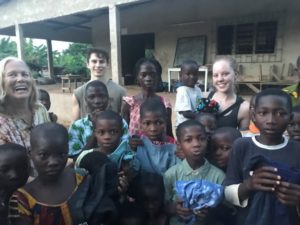 Patsy: How to decide whom to serve with limited finances. We don’t turn away anyone who can’t pay. Many of our patients have been rejected at other clinics. They were told they were “going to die anyway.” Disease prevention. It’s a long process. Because of the poverty it is easier to prevent the disease than to cure it.
Patsy: How to decide whom to serve with limited finances. We don’t turn away anyone who can’t pay. Many of our patients have been rejected at other clinics. They were told they were “going to die anyway.” Disease prevention. It’s a long process. Because of the poverty it is easier to prevent the disease than to cure it.
Seriale needed physical therapy to stand up and walk.
Jules had surgery on his eye
Diane: You seem fearless, Patsy. Did you have any fears starting out?
Patsy: After I make up my mind, what I call my “stupid mind” takes over. Anguish—and questions: How can you leave the best job, with great perks, give up retirement money? I realize that those are just little voices in my head, but acknowledging that fact, doesn’t turn them off! I had anxiety. So what! Doubts come up, but what’s more important?
April 2018: Charlie Blumenthal helped build an incinerator; Anna Erlandson, our President, now studying Global Health at NYU; and Patsy giving out clothes to orphaned and vulnerable children
Diane: After all of your travels, experiences, and work abroad, what would you say is your wish for the world?
Patsy: I would like to see an end to poverty and hunger, of course. And I’d like to see women worldwide be given the dignity, equality and respect that they deserve.
Update from Patsy:
I am especially proud now that our clinic has become a learning center. We presently have five interns, 3 nurses and 2 midwives. We provide housing and one meal for them a day for about 5 months and then we invite 5 more interns to learn from our staff with on the job training .
We provide scholarships for students. One young girl is in her second year of law school and has been invited to attend the most prestigious law school in Ivory Coast from where she will graduate.
We have treated almost 40,000 people in a village that has a population of only about 1500. We do not turn away anyone who can not pay.
We also provide filtered water from a cistern located on the property for all of the neighbors.
All donations are welcome www.ivorycoastaid.org
Sue Matthews and the Taylor Matthews Foundation
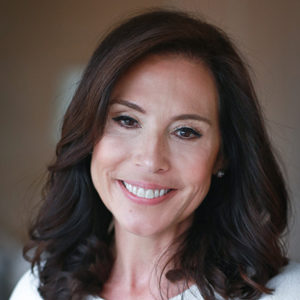 The next highlighted interview was one I did with Sue Matthews a dear friend, in January of 2019.
The next highlighted interview was one I did with Sue Matthews a dear friend, in January of 2019.
Sue and I both raised our kids in Edgemont, New York; our oldest daughters were in the same grade. Life was good. Then, when Sue’s middle daughter Taylor was eleven years old, every mother’s nightmare became Sue’s reality: Taylor was diagnosed with cancer. Sue is the President of the Taylor Matthews Foundation, a nonprofit organization dedicated to raising awareness and funding pediatric cancer research. She, along with her sister Andrea Cohane, wrote and published Paint Your Hair Blue, a moving memoir that chronicles the Matthews’ family journey and captures the spirit and “spunk” of an amazing young girl whose legacy to help others lives on in the work of her amazing mother. Sue is also an incredibly positive person who has learned from her daughter how to make the most of the moments we have.
Diane: When you read Paint Your Hair Blue, you get to know Taylor, which is a real gift.
Sue: Taylor is alive in the pages. She comes through. She always said she’s a kid with cancer—not a cancer kid. She wouldn’t let cancer define her.
When Taylor was eleven,
she had been given a short prognosis because the cancer had metastasized to her lungs, her adrenals and her femur. When you’re younger, cancer is usually more aggressive because your cells turn over more quickly. You also need higher doses of chemotherapy because your metabolism is quicker, which can hurt your organs. Even if you’re a survivor, your long-term survivorship is jeopardized.
“When One Hospital Failed Us or We Didn’t Have Confidence in the Doctors, We Went to the Next Hospital and the Next Hospital …”
Diane: One thing that really impressed me was that both you and your husband Bob challenged everybody! Not disrespectfully, but just “I want the information and tell me and how and why.” There are so many parents who would be too afraid to challenge a doctor who was taking care of their child. Where did you find that courage?
Sue: I don’t know how I got the strength, but the day after she was diagnosed, we arrived at a premier cancer hospital in the city, and they said that maybe we should consider not treating her because her cancer was so far advanced. I don’t know how I got the power, but I said “F— You! You’ve got to be kidding me! My daughter was in school yesterday!” Childhood cancer treatments are devastatingly underfunded by the government. But we also found, totally by trial and error, that not all doctors and not all hospitals are the same—they can, and do, suggest different treatments. So, when one hospital failed us, meaning the treatment failed, or we didn’t have confidence in the doctors, we went to the next hospital and the next hospital and the next doctor and the next scientist and the next researcher.
in NYC?
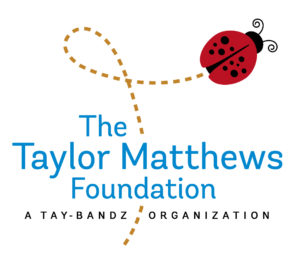 Diane: Let’s talk about the foundation. Talk about the beginning of Tay-bandz and all those little fundraisers.
Diane: Let’s talk about the foundation. Talk about the beginning of Tay-bandz and all those little fundraisers.
Sue: We found out that her protocol was 30-40 years old (which is now 50 years, she said to me, “Mommy, I don’t understand why all these kids like me are suffering.” She always said, “If I could save the life of just one child, it would all be worth it.”
With the help of friends and family, within 5 weeks of diagnosis, we started a foundation completely dedicated to raising funds and awareness for pediatric cancer research. We named it Tay-bandz. Tay for Taylor and bandz because—we thought this was odd—she wanted to design headbands and she was bald. We thought it was going to be a thousand-dollar bake sale at school, but it turned out to be headbands, belts, key chains, bags. We sold her pieces not only to our school district but to a lot of school districts in the county. That’s how it grew. We do fundraisers and have an annual campaign drive, and up to this point, we’ve raised about $1.6 million. And we have evidence from one hospital that one of the cancers that we funded research for, which had only a 5% survival rate, now has a 50% survival rate!
At another hospital we are funding precision medicine which analyzes the actual child’s tumor, or if it’s a blood cancer, analyzes their blood looking for DNA mutations. Then doctors can target treatment to the child’s particular DNA mutation. What better can I do after losing a child to cancer than make the lives of other children better? I’m so fortunate that I have Taylor’s legacy, that I am continuing the work she wanted. It keeps me in touch with her, with other kids with cancer, helping to save lives. After losing a child to cancer at 16, it may seem crazy to say that I’m grateful. I’m not grateful for losing her but grateful for a lot of things she’s taught me. Sometime, in a different realm, I think that maybe she was my mother and I was her daughter because she taught me she taught me so much.
Update from Sue:
The Taylor Matthews Foundation continues to fund cutting-edge, innovative research that reaches sick children today. It is our mission that children with cancer live long, healthy, and productive lives. We are at a pivotal time. Advances are being made but research and hope cannot wait. The pandemic has been very difficult for all and has not changed the fact that on average 43 children a day are diagnosed with cancer. Our commitment and dedication to children with cancer remains strong.
Donations are welcome at www.taylormatthewsfoundation.org or reach Sue at [email protected] to discuss an idea for a fundraiser.
Sharon Richardson of Reentry Rocks and Just Soul Catering
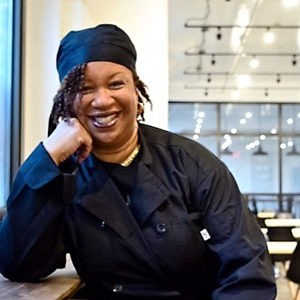 I had the great honor of interviewing Sharon Richardson 2 years ago. Here are some highlights of our time together.
I had the great honor of interviewing Sharon Richardson 2 years ago. Here are some highlights of our time together.
A formerly incarcerated woman who served twenty years in a correctional facility for a domestic violence related case, Sharon has made her life’s work helping other women who have walked a similar path. She is the Founder and Executive Director of Reentry Rocks: “one of the first re-entry programs in the country that is specifically designed to meet the unique and complex needs of survivors of intimate partner violence and other forms of gender based violence.” She is also the Founder and CEO of Just Soul Catering which Sharon describes as “a justice involved social enterprise, relentlessly striving to serve our customers with delicious food and affordable prices.” Yet food is only one way Just Soul Catering feeds its customers and community. Sharon envisioned running a company whose employees were all formerly incarcerated individuals. Not only do her employees prepare and serve the meals, they tell their stories, leaving not a dry eye in the house. Sharon has realized her own dream and has helped to make the dreams of many reentering women come true as well, an inspiring story, indeed!
Diane: You say your work is informed by your life experience. Can you share some of that experience?
Sharon: Sure. I spent 20 years in Bedford Hill Correctional Facility–from 1990 to 2010. I was charged with murder in the second degree and conspiracy in the first degree for killing my abuser. There were four codefendants. A gentleman living with us at the time saw the abuse going on. He and three of his friends jumped my abuser and killed him. When the information was given to the police, the police charged me with those crimes.
“I Became a Better Mother, a Wonderful Daughter, a Mom to So Many Girls Inside, an Educator, a Teacher”
They did not want to hear anything I had to say about what led up to what happened. I’m not saying I would not have spent any time in prison. I would have. But if they had listened to the evidence of abuse, I would not have been sentenced to 20 years. It’s so emotional for me, even to this day, because a life was taken. Not just one life, but two lives—his and mine. Two families lost people and a third family comes into play because my children were left with my mom. She gave up the life she was leading to become a mom again, not a grandmother, and raise my kids while I was in prison.
When you enter the criminal justice system, people tell you you can appeal and go home. I kept appealing and the doors did not open. It was not until my seventh or eighth year that I decided to get my associates degree, then my bachelor’s degree, and then to take the clinical pastoral education course. We came from our own walks of life yet connected on that level. The clinical pastoral program changed all our lives. Before I knew it, I was becoming a better person, a more spiritual person, a more connected person. I became a better mother, a wonderful daughter, a mom to so many girls inside, an educator, a teacher.
“People Don’t Have the Right to Ask Us Questions Like, ‘How Could You Allow That to Happen?’ Why Don’t They Ask Questions Like, ‘How Did You Survive That?’”
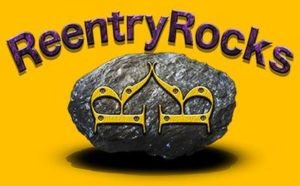 Diane: On your website you mention the “unique and complex needs of survivors of intimate partner violence and other forms of gender-based violence.” Can you talk about those needs are and how to best serve them?
Diane: On your website you mention the “unique and complex needs of survivors of intimate partner violence and other forms of gender-based violence.” Can you talk about those needs are and how to best serve them?
Sharon: The unique needs of gender-based violence, or any violence in the home that women have been exposed to, are hard to explain.
I walked in a line of fire—gaining wisdom from the streets, from the drugs, the alcohol, the negativity. When I went to prison, I met people who had the same story and worse. Violence in the home and violent relationships can lead you to do things that you would never do under other circumstances. Domestic violence (DV) happens to people from all walks of life. I’m home now, and I believe in paving the way and setting up a place where women can come get help—not to identify as the poor victim. I don’t want DV to define us. People don’t have the right to still judge us. They don’t have the right to ask us questions like, “How could you allow that to happen?” Why don’t they ask questions like, “How did you survive that?”
“Storytelling Changes Lives”
Diane: Can you tell me how you use storytelling in your program?
Sharon: The story telling piece brings trust. When women talk to me, I can say that I have been down that road, walked where they walked. I have worn [prison] green. When I talk about the worst of the worst, that someone lost their life, the room becomes silent.
There’s an impact of words. And when they’re standing there eating this girl’s food—it’s not just food—it’s soul food, with a story—they can no longer lift this macaroni and cheese to their mouths without honoring the girl’s story.
Storytelling changes lives. It’s inspirational. It moves people, changes people. It makes the people who did not care, or who had judged, different when they walk away. I guarantee you that if 25 people are in the room who all entered that room with their own agenda, at least one half of them, three quarters, will leave different. This is what we do.
Diane: So, give me an idea. Let’s say someone hires you. They have a group of 20-50 people. What would the evening look like?
Sharon: Let’s say someone is having a graduation party. They would go to our website and click on booking. We would cook whatever they ordered. I would take one or two other workers with me. We would serve the guests, and then I would start: “Hi. I’m Sharon Richardson, the owner of Soul Food Catering, which hires formerly incarcerated women. I’m also the founder of Reentry Rocks, a nonprofit organization, and this is the reason we do this work. And then we’ll tell our stories, sometimes around the theme of the event. There is never a dry eye in the house.
“Your Memory Is a Gift, Not a Punishment. Stay in Your Cocoon Until You’re Ready. Then Fly.”
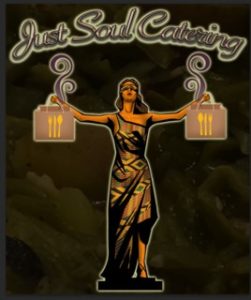 Diane: Tell us about Re-Entry Rocks. How does a woman hear about you?
Diane: Tell us about Re-Entry Rocks. How does a woman hear about you?
Sharon:
Sharon: She can hear about us through parole, probation, the court system, word of mouth, or other organizations affiliated with us. I know a slew of people, and the word is out now that we exist and about what we’re doing.
We have two creative arts programs. One is the culinary. The other is the Sentenced to Dance—our dance group. We have a DV support group and an anger management group.
Diane: When you reentered, what was your biggest challenge?
Sharon: I couldn’t swipe my Metro card—even the bus driver asked me where I was from.
Diane: So, the everyday stuff.
Sharon: Yes. Everyday stuff.
Diane: Do you have any final thoughts? Wishes for women?
Sharon: The metaphor of the caterpillar and the butterfly. You can’t cut open the cocoon. The caterpillar has to go through the whole process—the struggle in the cocoon helps the wings get stronger and stronger. Nothing comes easy. It’s from struggle that great things come. Take responsibility. When you do break through, you will be able to walk in glory, in truth. You are not defined by your past. Your memory is a gift, not a punishment. Don’t let people judge you. Stay in your cocoon until you’re ready. Then fly.
Update about Sharon:
Sharon Richardson is fearless—and tireless! She is incredibly dedicated to her mission and is getting the word out there! She was recently a guest on the Kelly Clarkson Show and just last month was featured in Bon Apetite https://www.bonappetit.com/story/sharon-richardson-just-soul-catering Here’s a little bit of what she said in that article, “’To keep doing this work we need… our own space. It would look like this amazing commercial kitchen. You could see the sign that says, ‘We made it.’ It would have an office space where we conduct relationships with people from the outside; we don’t even have our own phone now. We would have our computer room. We’d have a lunchroom where we could all eat, separate from the kitchen, and possibly a café to invite the community in—grab three or four people off the street, introduce them to Just Soul, and say, ‘We’re going to teach you how to make cornbread today.’
We would have pictures on the wall… of our graduation ceremonies and the women walking out the door with a certificate and letter in their hands, starting their own businesses. We’ve got the pictures already; we just need our own wall to put them on.”
If you’d like to help in funding this dream donations are welcome at http://reentryrocks.org and http://www.justsoulcatering.com
Judy Bogen and Place2Heal
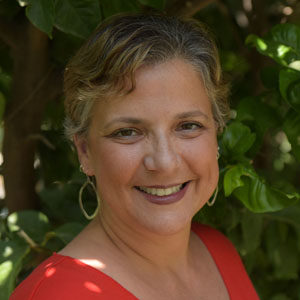 Judy Bogen is another amazing woman! Through her own experience with breast cancer, she found her calling–helping others going through cancer treatment by changing their treatment environments. Judy researched, reached out, and realized her dream–Place2Heal. Here’s a bit of our interview this past April
Judy Bogen is another amazing woman! Through her own experience with breast cancer, she found her calling–helping others going through cancer treatment by changing their treatment environments. Judy researched, reached out, and realized her dream–Place2Heal. Here’s a bit of our interview this past April
Diane: Please tell us how you came to this wonderful project.
Judy: When my sister was diagnosed with breast cancer, people told me to see a doctor to check if it was genetic. The doctor said, “If you are a carrier, you need to have your ovaries removed, and you need to have a bilateral mastectomy.” Very extreme.
I told him, “I can’t have my ovaries removed because I want to have more children.” I added, “Over my dead body, would I ever have a mastectomy.” That was approximately a year before I had a mastectomy.
I was 38 when, literally, I went into menopause. The gynecologist did some follow up and told me I couldn’t have more children, so, I had the ovariectomy.
I went for a routine mammography. There were two lumps, and they were both cancerous.
And the oncologist’s recommendation was a bilateral mastectomy with a reconstruction. I had eight sessions of chemo, one every two weeks. I just suffered terribly and was very, very depressed. It was terrible, but I was treated in the chemo lounge, in the oncologist’s office in Maryland, where I was living at the time. The place was gorgeous. It had a huge window which overlooked the top of pine trees and had this feeling of light and warmth and comfort. There were only six of us went in at a time. In Israel, (where Judy lives now) you go to the hospital for treatment and there are 30, 40, 50 people… sometimes up to 100 people are treated a day. That’s a crazy number of people.
“I Think This Could Be My Calling.”
I have a wonderful oncologist in Israel. The office is okay. But one day, my daughter was with me, and we got off at the wrong floor, the treatment floor. It was like a cattle market. People were standing, sitting on the arms of sofas. When we went up to my appointment, I said to my daughter, “I think this could be my calling.”
Diane: Right then, you said “This is terrible. There has to be a change and I can do this?”
Judy: Absolutely. Literally right there.
Diane: What made you think you could do it?
Judy: I was reaching an age where it was time to do something more meaningful. So I started to meet with lawyers and hospitals and realized the bureaucracy was going to be a very, very big deal, but, I waded my way through it somehow. And we were officially recognized as a charity in May of 2016. I called it Place2Heal.
“We Find Our Courage Because We Find Ourselves”
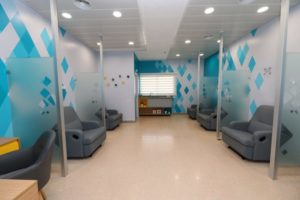 Judy: We started fundraising, which is also not a natural skill. I went to visit a couple of cancer centers in New York and met with a wonderful healthcare architect there from a large firm, who talked to me about her work.
Judy: We started fundraising, which is also not a natural skill. I went to visit a couple of cancer centers in New York and met with a wonderful healthcare architect there from a large firm, who talked to me about her work.
Then I read the science and evidence-based healthcare design, EBHD. People need scientific evidence before backing you. They like to know what you’re planning is not just based on a feeling.
I’ve become much more assertive, much more persuasive.I sit in meetings with engineers, interior designers, the head oncology nurse and the head of oncology. It’s a lot to juggle and a whole new thing for me.
Diane: What did you learn about yourself in all this?
Judy: I don’t think it was a coincidence it’s all happening as I’m in my early fifties. You’ve dedicated your whole life to working around the clock and raising your kids. When you get to a certain age, it’s like, “If I’m not going to grab it now, then in 20, 30 years, I’m going to look back and say what did I do?”
We find our courage because we find ourselves.
Diane: Where are you now in the project?
Judy: In June, we went in and finished the final touches. We had our opening in July.
Update from Judy:
Since we last spoke, we have participated in the Jerusalem Marathon, 29th October 2021. It was a really fun day, we had about 20 on our team and raised in excess of 12,000 Shekel. We continue to raise awareness and to fundraise using social media.
We continue to meet with hospitals to talk about how we can work together to bring about a more healing environment for their patients going through cancer treatment.
Donations welcome at place2heal.
As always, I’d love to hear your thoughts. What was your greatest learning this year? Please leave a comment or send an email–and feel free to share on social media!
See you next year!
XOXO
Diane

If You Know Another Amazing Woman (Or Person Of Any Gender!) Who Might Like To Join Us At WomanPause, Please Forward This Link: WomanPause
For one-on-one support in uncovering your voice on the page, please consider working with me! I’d love to join you on your journey!


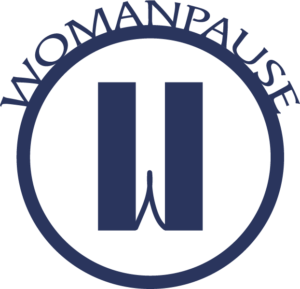
Congratulations on your publications Diane and your amazing progress on your book! Thank you for these inspiring stories of women who are making a difference in the world!
Thank you Denise!
Congratulations on 18 pieces published in one year! What an achievement. And thank you for always offering us interviews full of insights with inspiring women.
Thanks so much Isidra!!
The energy generated by you and these women jumps off the page. Congratulations on your well deserved success in writing!
Blessings to these amazing women.
Thank you Greta! Blessings to you!
It might not be much but I volunteered for NOW National Organization for Women for many years and held posts on their Albany, New York Board. I also volunteered at two local museums, The Shaker Society Museum and The Albany Institute of History and Art. I also worked with Adult Children of Alcoholics and raised money for the Make a Wish Foundation.
Thank you for sharing your rich and varied volunteer experiences, Joan!